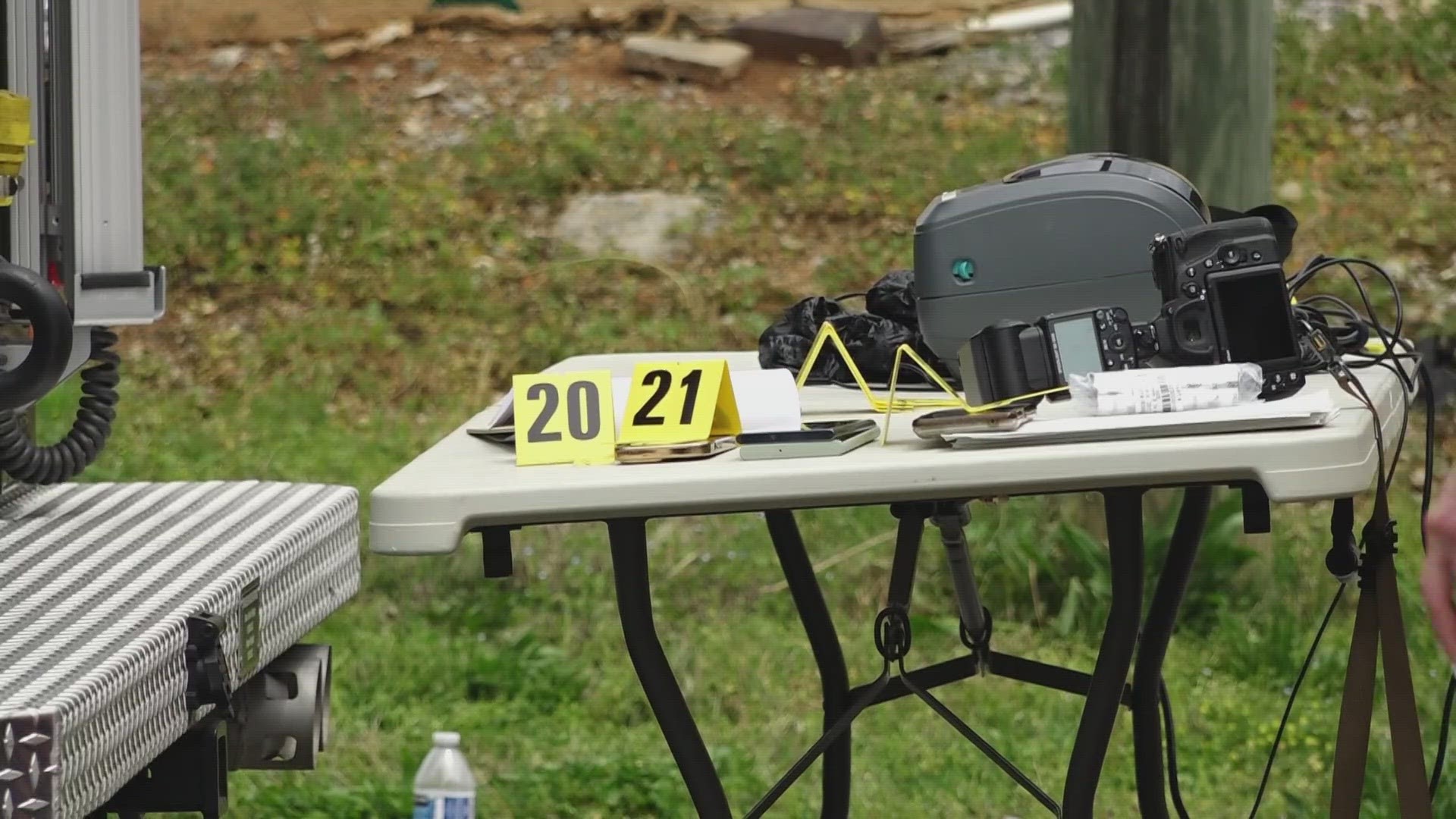ST. LOUIS — Donald Trump has made political history again. Not in a good way.
With the release of a 2005 video in which he boasts about his sexually predatory behavior toward women, Trump created the most catastrophic October surprise in modern American politics, the likes of which no previous presidential candidate has survived to win.
Now the question is less whether he will be elected to the White House in November — that seems a distant prospect indeed — but whether a likely defeat by Hillary Clinton ensures a Democratic takeover of the U.S. Senate and risks GOP loss of control of the House. The furor raises questions about the future of the Republican Party once the day of reckoning comes between Trump's most fervent supporters and those who have rebuked him.
Just 30 days before the election, and after early voting has started in some states, there is speculation about whether he could be forced or persuaded to resign from the ballot (though a fist-pumping Trump assured supportive demonstrators outside Trump Tower Saturday that he would stay in the race "100%") or whether party regulars chosen to cast ballots in the Electoral College, usually a pro forma affair, could vote for someone else.
The cascade of political reaction in the space of a weekend was unprecedented.
The Republican presidential nominee and his degrading language was denounced by the national chairman of his party. The nation's highest-ranking GOP official, House Speaker Paul Ryan, disinvited him from a chance to share a Wisconsin stage Saturday. South Dakota Sen. John Thune, a member of the Senate leadership, called on him to withdraw. New Hampshire Sen. Kelly Ayotte, in a tough re-election contest, said she would write in the name of Trump's running mate, Indiana Gov. Mike Pence, on her ballot. Pence himself released an extraordinary statement saying he didn't "condone his remarks and cannot defend them."
And the second presidential debate at Washington University here Sunday night no longer was seen as an opportunity for Trump to regain political momentum, though a remarkable performance might stem the air of crisis now surrounding his candidacy.
Before the debate, Trump was defiant.
"So many self-righteous hypocrites,” he said in a tweet, referring to Republicans rescinding their endorsements. "Watch their poll numbers — and elections — go down!"
The 90-minute town hall will cap what was one of the worst two weeks any presidential candidate has endured. It started with his widely panned performance at the first presidential debate, followed by a late-night tweetstorm targeting a former beauty queen and leaked tax returns that showed he reported a $916 million loss in 1995. That could mean he avoided paying federal income taxes entirely for 18 years.
Trump has seen his standing slip and Clinton's rise in polls nationwide and in battleground states.
Then, in the wake of the latest disclosure, a tidal wave of Republican senators, representatives and others have withdrawn their endorsements, some urging Trump to resign from the ticket. It was reminiscent of the aftermath in 1974 of the release of the "smoking gun" tape in the Watergate scandal, one that undercut the support an embattled President Nixon still held within his own party.
Ironically, there also were echoes from the first days of the Monica Lewinsky scandal that engulfed President Bill Clinton in 1998. After allegations of a sexual affair with a White House intern surfaced, Clinton denied them to reporters and, on the day of the State of the Union, Hillary Clinton famously blamed a "vast right-wing conspiracy." The president delivered the annual address to a Joint Session of Congress that night without mentioning the growing furor.
Nixon would reluctantly resign. Clinton would survive impeachment.
One key difference is that the Constitution outlines a process to remove and replace a president. There's no such clarity for a presidential nominee.
This is hardly the first time there has been unexpected drama in the weeks before Election Day: The Suez Crisis in 1956. The arrest of Martin Luther King Jr. at an Atlanta sit-in in 1960. President Johnson's announcement of Vietnamese peace talks in 1968. Secretary of State Henry Kissinger telling reporters at the White House that "peace is at hand" in Vietnam in 1972. President Carter rushing back to Washington from a late campaign swing in 1980 amid hopes that the Iranian hostages were about to be released.
While some of those elections already were poised to be landslides, John Kennedy was helped in a close contest by a boost in African American turnout after Robert Kennedy interceded to help win King's release from jail. The public failure of Carter to win the hostages' release sealed his defeat. Carter's campaign may turn out to be the closest political parallel to this one. His campaign already was flagging, but his support cratered after what was seen as a national humiliation at the hands of Tehran.
That said, the hostage crisis and those other campaign "October surprises" involved policy. Trump's catastrophe is about the character of the candidate itself. And while reality TV shows like The Apprentice typically reward outrageous behavior and controversy with higher ratings, that's not usually the case with presidential campaigns.
This election already had made history. Clinton is the nation's first female nominee. Trump is an outsider with no governmental experience who vanquished a dozen more experienced rivals in the Republican primaries to claim the other nomination. The history-making apparently isn't over yet.


